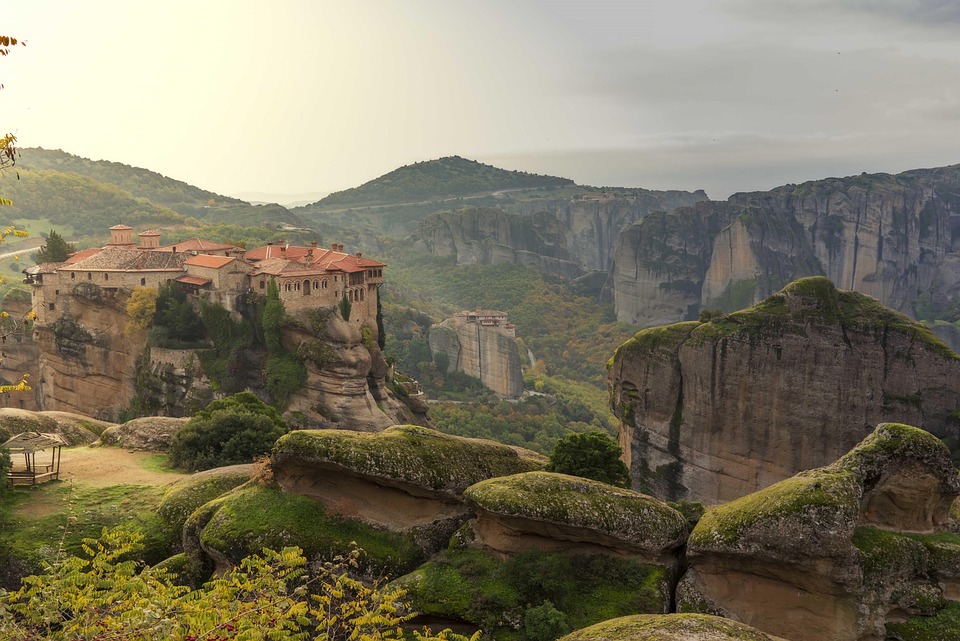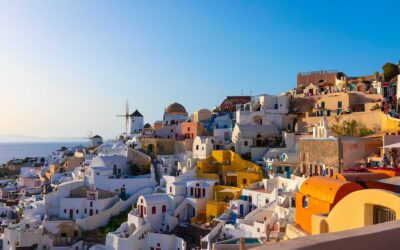
Greece, a country known for its stunning landscapes and vibrant culture, is also a living museum of ancient history. Its ruins and relics tell stories of a civilization that laid the foundations of Western culture, philosophy, and governance. Exploring these ancient sites offers a fascinating glimpse into the past and reveals the richness of Greek heritage.
The Acropolis of Athens
At the heart of Greece’s capital lies the Acropolis, a UNESCO World Heritage Site and an emblem of Classical Greece. Dominated by the Parthenon, a temple dedicated to the goddess Athena, the Acropolis showcases remarkable architectural mastery. Constructed in the 5th century BCE, the Parthenon’s majestic columns and intricate sculptures symbolize the power and advancement of Athenian democracy. Visitors can explore the Acropolis Museum, which houses artifacts from the site, deepening their understanding of the cultural context and religious significance of this iconic symbol.
Delphi: The Oracle’s Sanctuary
Nestled in the foothills of Mount Parnassus, Delphi was once considered the center of the world by ancient Greeks. It served as the home of the Oracle of Delphi, where priestesses delivered prophetic messages from the god Apollo. The ruins of the Temple of Apollo, along with the ancient theater and stadium, provide insight into the religious practices and societal beliefs of the time. The breathtaking views from Delphi add to the mystical aura of this historical sanctuary, making it a must-visit for history enthusiasts.
The Ruins of Olympia
Home to the ancient Olympic Games, Olympia holds a unique place in Greek history. The sanctuary features the remains of temples, gymnasiums, and the Stadium where athletes competed in honor of Zeus. The site is also known for the colossal statue of Zeus, one of the Seven Wonders of the Ancient World. Today, the Olympic Museum nearby showcases the evolution of the Games and their cultural significance, celebrating Olympia’s lasting impact on athletic competition and unity.
Ancient Corinth: A Crossroads of Cultures
Ancient Corinth played a pivotal role in trade and culture during the classical period. The city’s ruins, including the Temple of Apollo and the Acrocorinth fortress, provide a testament to its historical importance. Visitors can explore the ancient marketplace (Agora) where merchants and philosophers once converged, and learn about the daily lives of its citizens. Corinth’s strategic location made it a melting pot of cultures, and its remnants illustrate the complex interactions between Greek, Roman, and Byzantine civilizations.
Knossos: The Minoan Legacy
On the island of Crete, the Palace of Knossos offers a glimpse into one of Europe’s earliest advanced civilizations—the Minoans. This sprawling complex, believed to be the legendary labyrinth of King Minos, showcases remarkable architecture and frescoes that reveal insights into Minoan society, art, and rituals. The vibrant decorations and advanced engineering of the palace, including its extensive plumbing system, highlight the sophistication of this ancient culture and its influence on later Greek civilization.
The Roman Ruins of Athens
While Greece is synonymous with classical traditions, its history continued to evolve under Roman rule. The Roman Agora in Athens, with its ancient marketplace and the well-preserved Tower of the Winds, speaks to the integration of Greek and Roman cultures. Nearby, Hadrian’s Library stands as a testament to the intellectual pursuits that flourished during this era. Exploring these ruins allows visitors to witness the harmonious blend of Greek and Roman influences that shaped Athenian society.
Epidaurus: The Theater of Healing
Known for its exceptional acoustics, the ancient theater of Epidaurus is a marvel of engineering and artistry. It once served as a venue for dramatic performances dedicated to Asclepius, the god of healing. The theater’s design exemplifies the importance of the arts in Greek culture and its connection to spirituality. Attending a performance in this ancient setting offers a unique experience, bridging the gap between past and present.
Conclusion
Greece’s ruins and relics are not merely remnants of a bygone era; they are vibrant storytellers of a civilization that has profoundly influenced the world. From the philosophical musings of Socrates to the athletic feats of ancient Olympians, each site encapsulates a slice of history that continues to resonate today. Exploring these ancient treasures invites travelers and history enthusiasts alike to immerse themselves in the rich tapestry of Greek heritage, igniting a sense of wonder and appreciation for the legacies of the past.










